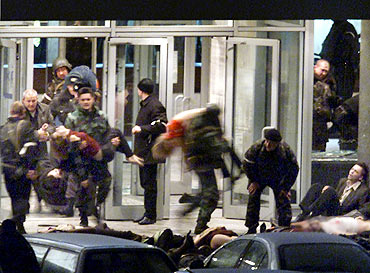
October 23, 2002. Forty Chechen terrorists seize a Moscow theatre, hold over 700 theatre-goers hostage and demand the withdrawal of Russian forces from Chechnya.
After two-and-a-half days, Russian security forces raid the building and pass gas through the ventilation system.
39 terrorists are killed, along with about 120 hostages.
The Russian government's decision to use gas is widely condemned for causing hostage deaths.
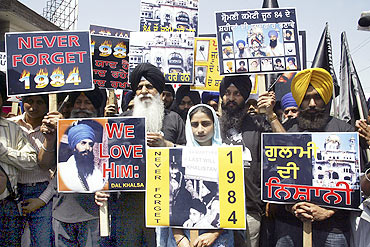
The separatists want an independent Sikh nation called Khalistan.
Hundreds of pilgrims inside the shrine are unwittingly held hostage as the Indian Army storms the Golden Temple on the night of June 5.
By the time the bloody battle ends two days later --Bhindranwale's troops are led by retired general Shubegh Singh, ironically a hero of the 1971 war against Pakistan -- and the army takes full control of the shrine, nearly 500 people are dead. The unofficial toll is much higher.
Indira Gandhi's government comes under immense criticism for launching the military assault on the Golden Temple, much of which lies damaged.
Four months later, Indira Gandhi is dead, gunned down by her Sikh bodyguards, Beant Singh and Satwant Singh.
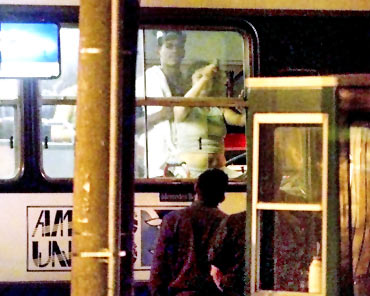
The incident quickly develops into a hostage situation, broadcast live by Brazilian television channels, and picked up by television stations the world over.
A few hours later, Nascimento is dead and so is a hostage, a school teacher who he uses as a human shield when he tries to leave the bus.
The hostage crisis later becomes the subject of an acclaimed documentary, Bus 174.
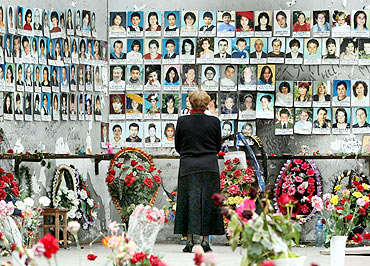
The terrorists want President Vladmir Putin to end the second Chechen war before they release the hostages.
Unbelievable scenes of human agony unfold during the many hours of the terrifying siege in the town located in north Ossentia bordering Chechnya.
On the third day of the siege, September 3, Russian commandos storm the school building.
The special forces kill all but one of the 32 terrorists. 303 others are dead, including 186 children. 700 people are injured.
Though some children escape from the building as the troops move in, many bodies are found charred beyond recognition after the siege. Parents have to wait for DNA tests to confirm the fate of their children.
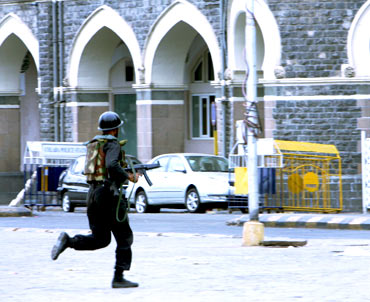
By the time the siege ends at the Taj hotel on the morning of November 29, 174 people are dead, including 9 terrorists.
Mohammad Ajmal Kasab, the lone terrorist captured alive by the Mumbai police early on November 27, is given the death sentence in May. Two commandos and 16 policemen die fighting the terrorists.
26/11 remains India's worst hostage crisis.
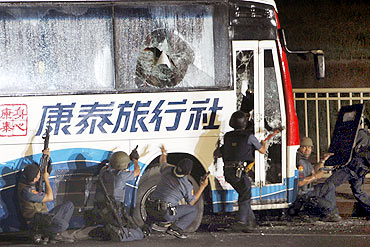
A decorated policeman, Mendoza has been dismissed from service for extortion and drug-related crimes and demands reinstatement in the police force.
As night falls on August 23, 2010, eight hostages (two later die in hospital) and Mendoza are dead.
Mendonza is said to have killed the hostages after which police stormed the bus and shot him in the head. No one knows the truth just yet.